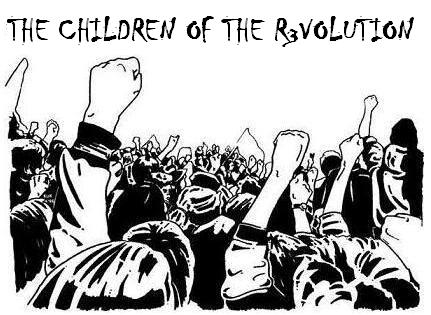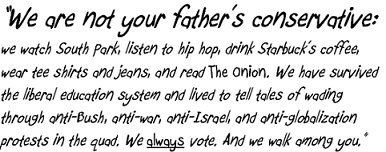I
 President Obama has come under significant criticism for his lukewarm initial response to the massive civil unrest in Iran following the “re-election” of Mahmoud Ahmedinejad. The president initially commented that he had "deep concerns about the election," but insisted that it was "not productive, given the history of U.S.-Iranian relations, to be seen as meddling." Critics, largely conservatives, shot back at the president by pointing out that the contestation of the election by the Iranian people presented a rare opportunity to foster real democracy in Iran from the bottom up and challenge the clerical autocracy. Senator John McCain said, "People are being killed and beaten in the streets of Tehran and all over Iran, and we should stand up for them. The way we stood up for the Polish workers in Gdansk, the way we stood up for the people of then Czechoslovakia in the Prague Spring and we have stood up for freedom in every part of the world. We're not doing that."
President Obama has come under significant criticism for his lukewarm initial response to the massive civil unrest in Iran following the “re-election” of Mahmoud Ahmedinejad. The president initially commented that he had "deep concerns about the election," but insisted that it was "not productive, given the history of U.S.-Iranian relations, to be seen as meddling." Critics, largely conservatives, shot back at the president by pointing out that the contestation of the election by the Iranian people presented a rare opportunity to foster real democracy in Iran from the bottom up and challenge the clerical autocracy. Senator John McCain said, "People are being killed and beaten in the streets of Tehran and all over Iran, and we should stand up for them. The way we stood up for the Polish workers in Gdansk, the way we stood up for the people of then Czechoslovakia in the Prague Spring and we have stood up for freedom in every part of the world. We're not doing that."President Obama has since come out with a slightly stronger poke at Iran, stating at a press conference that he was “appalled and outraged by the threats, beatings and imprisonments of the past few days.” He cited the now famous case of the 26-year-old Iranian female protestor who was gunned down in Tehran, her death captured on film, as “raw and extraordinarily painful.” Despite ratcheting up his criticism, however, the president remains hesitant to take a tack with Iran that would play into their favorite narrative of American interference, or give them the ammunition they need to pin the blame for the riots on the United States. Said the president, “There are reports suggesting that the CIA is behind all this. All of which is patently false. But it gives you a sense of the narrative that the Iranian government would love to play into.”
The president’s supporters have praised his response as cautious, calculated and level-headed, which also happen to be their favorite adjectives to describe the man himself. But his critics, myself among them, would characterize the response as timid and deferential. The fact of the matter is that Senator McCain is right. America has stood up for freedom and democracy all over the world in the face of tyranny. At the end of the Cold War, when Soviet satellite states were rising up against their communist overlords, President Reagan praised them, shone the spotlight on them, and supported them. He knew that the opportunity for those people to grab freedom with both hands and shape their own destiny may not have come again had the United States and our allies not given them shoulders to stand on.
That having been said, our support for the protestors should not and does not amount to support for Mousavi, who in many ways is no more progressive than Ahmedinejad. Rather it is support for the notion underlying the protests, that the current Iranian regime is not a legitimate democracy. As long as there exists an authoritarian, un-elected body with the authority to override the will of the people unilaterally, there is not freedom. Senator McCain understands this as well and has articulated it by saying, “…let's not take the side necessarily of the protestors...the fact is we should be on the side of a free and fair election, and not be in favor of an oppressive brutal government." For decades we have told the people of Iran that when they found the courage and opportunity to rise up against the regime, we would be there to cheer them and support them. President Obama’s follow through on that promise has left a great deal to be desired and, in the context of his unwillingness to be portrayed as antagonistic toward Iran’s regime, left the country looking like a paper tiger and fair-weather friend to freedom.
It really is quite silly to think that, by not giving Iran excuses to implicate the US as fomenting this unrest, the Iranians will let us off the hook. The president and his ilk have argued that our vocal support would result in the protesters being portrayed as Western proxies, thereby damaging their credibility within Iran. But the Iranians have been blaming us for all sorts of things since 1979, some of which was deserved, much of which was not. They don’t need President Obama to provide them with an excuse to kick around the West or demonize the protestors as a CIA-backed mob. To tip-toe around human rights violations and the chance of real democracy in Iran because the brutal tyrants who are threatened by it might use it against you is lunacy. For a president who wants to promote an image of an America dedicated to the principles of freedom and dignity for all human beings, this policy represents a demonstrable failure.
But those who suffer the most will be the people of Iran who tried to challenge their masters; when it is all said and done, they may only be recorded as a footnote in the history books thanks to our thunderous silence. We need to be rhetorically aggressive and support those who would stand up for freedom against its enemies. Some say the gamble is too risky, that if those who challenge the regime fail to win reforms that our relationship with Iran will be setback even further, and they will be even more resolved in their anti-Westernism. I say the perceived gains in US-Iranian relations since the Obama administration took over have been illusory, that the retention of Mahmoud Ahmedinejad attests to a continued hard-line tone unequivocally. I say there remains less to lose from supporting freedom in Iran than from allowing the regime to crush and demoralize those who march for it.







No comments:
Post a Comment